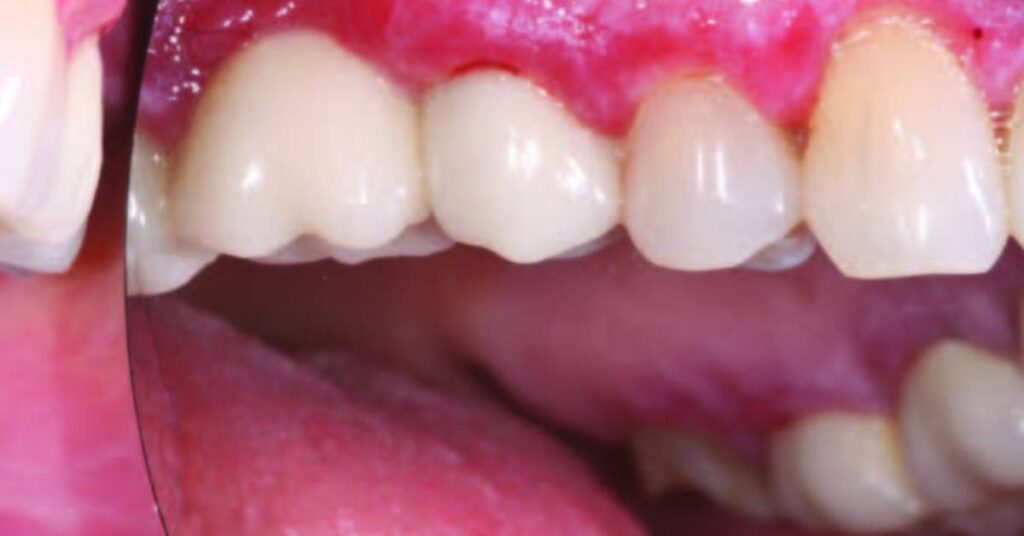
Discover Natural Remedies to Overcome Gingivitis: An Overview
Gingivitis is a common oral health issue that affects the gums, which results in inflammation and swelling. If not treated properly, it can lead to more serious complications, such as periodontal disease. It is important to treat gingivitis promptly, as it can cause significant pain and discomfort. Fortunately, there are a number of home remedies that can be used to help reduce symptoms of gingivitis and keep your teeth and gums healthy. In this guide, we’ll discuss the causes, symptoms, diagnosis, and treatment of gingivitis as well as the potential benefits and risks of using home remedies.
What Causes Gingivitis?
Gingivitis is an inflammatory condition of the gums caused by a build-up of plaque and bacteria. Poor dental hygiene, inadequate nutrition, smoking and other unhealthy lifestyle habits can all contribute to the development of gingivitis.
Poor dental hygiene is one of the biggest risk factors for gingivitis. Plaque and tartar that builds up on the teeth act as the perfect breeding ground for bacteria which can cause inflammation of the gums. If not removed regularly, this plaque can harden into tartar, a substance that cannot be easily removed with regular toothbrushing.
Inadequate nutrition also plays a role in the development of gingivitis. Eating an unhealthy diet or not consuming enough essential nutrients such as vitamins and minerals can weaken the body’s ability to fight off infection and inflammation. Smoking, alcohol and drug use can also contribute to the development of gingivitis due to their negative effects on the immune system.
Signs of Gingivitis
The main symptom of gingivitis is red, swollen gums. In addition, other signs can include:
- Chronic bad breath that won’t go away
- Bleeding gums when brushing or flossing
- Pain when chewing
- Tenderness and inflammation
- Recession of the gums
If you experience any of these symptoms, it is important to get them checked out by a dentist, who will be able to diagnose and treat gingivitis.
Diagnosis of Gingivitis
If you start to experience any of the symptoms of gingivitis, it is important to get an accurate diagnosis as soon as possible. A qualified healthcare provider will be able to diagnose gingivitis and provide treatment options. Some of the tools used for diagnosis include a mouth exam, X-rays, and possibly medical tests.
As part of the diagnosis process, your healthcare provider will examine your gums, teeth, and mouth for signs of gingivitis. X-rays may also be taken to look for potential damage below the surface of the gums that may have been caused by the infection. If necessary, additional medical tests may be administered to identify any underlying conditions that could be causing the gingivitis.

Traditional Treatments for Gingivitis
Gingivitis is a common form of gum disease that can cause inflammation in the gums and can eventually lead to severe damage if not treated effectively. Fortunately, there are a number of traditional treatments available that can help alleviate the symptoms of gingivitis and can even reverse the damage that has already been done.
The most common treatment options for gingivitis involve the use of medication. Antibiotics are often prescribed by dentists to eliminate any bacteria causing the inflammation, while topical medications like mouthwashes can help reduce swelling and keep the gums healthy. In some cases, dentists may also recommend laser treatments to remove plaque and bacteria buildup around the gums.
In addition to these traditional treatments, it is also important to take preventative measures such as brushing and flossing regularly and visiting the dentist for regular checkups. This will help keep the gums healthy and prevent gingivitis from reoccurring.
Benefits of Home Remedies for Gingivitis
Home remedies for gingivitis can offer some distinct benefits over traditional medications. Here are a few of the potential advantages:
- Home remedies are usually cheaper and more accessible than drugs prescribed by doctors.
- Many home remedies are natural and free from harsh chemicals or synthetic ingredients, making them gentler on the mouth.
- Since they are typically lifestyle changes rather than medications, home remedies often provide a more lasting solution to gingivitis.
- Using home remedies may help prevent future occurrences of gingivitis.
Although home remedies for gingivitis may be beneficial, it is important to remember that each individual’s needs varies and it is always best to consult with a doctor or dentist before beginning any new treatment regimen.
Home Remedies to Try
When it comes to treating gingivitis at home, there are a few remedies that you can try. The most common home remedies include saltwater rinses, hydrogen peroxide gargles, and oil pulling.
- Saltwater Rinses – To make a saltwater rinse, mix ¼ teaspoon of salt in 1 cup (8 ounces) of warm water. Stir until the salt dissolves. Use this solution to rinse your mouth for 30 seconds, then spit it out.
- Hydrogen Peroxide Gargles – Mix one part hydrogen peroxide with one part warm water. Gargle with the mixture for 30 seconds, then spit it out.
- Oil Pulling – Place 1 tablespoon of coconut oil into your mouth and swish it around for up to 20 minutes. Spit the oil out and rinse your mouth with warm water.
Keep in mind that while these home remedies may help alleviate symptoms of gingivitis, they may not be effective in treating severe cases. It is important to consult with a dental professional if your symptoms persist.
How to Use Home Remedies for Gingivitis
Home remedies can be an effective way to manage and treat gingivitis. To ensure they work effectively and safely, there are certain steps you need to take when using home remedies.
Here are the steps to using home remedies for gingivitis:
- Choose the right remedy – Research different home remedies to see which one works best for your symptoms.
- Follow the instructions carefully – Read the instructions printed on the package to make sure you use the remedy correctly.
- Check with your dentist – Speak to your dentist to ensure the remedy is suitable for your condition.
- Use it regularly – Make sure to use the remedy regularly as prescribed to achieve the desired results.
- Observe any changes – Monitor the progress of your condition by paying attention to any changes in the symptoms.
Using home remedies for gingivitis can often be a good option for those who want to avoid taking medication or who prefer natural treatments. However, it is important to remember that home remedies should be used in combination with professional medical advice.
Dangers of Using Home Remedies
Using home remedies for gingivitis can be an effective way to address some of the symptoms of the condition. However, it is important to be aware of potential risks associated with using these treatments. Home remedies may cause irritation or other uncomfortable side-effects if used incorrectly. It is also possible that some natural ingredients used in the home remedies can interact with other medications.
For example, if hydrogen peroxide is used excessively in a mouth rinse, it can damage tooth enamel and cause irritation. Salt water rinses can also cause discomfort if used too frequently. Other potential risks include allergic reactions to certain ingredients, such as herbs or essential oils.
It is best to talk to your doctor before trying any home remedies. Your doctor may be able to recommend a safe and effective treatment plan that includes home remedies.
Other Options for Treating Gingivitis
If you have gingivitis, you may be wondering about other treatment options available to you beyond home remedies. In some situations, it may be necessary to seek medical attention to treat gingivitis. Your dentist can provide various treatments that can help reduce inflammation and irritation in your gums.
One option is laser treatment, which uses specialized light to target affected areas. This is a less invasive procedure than traditional surgery, which involves cutting away the damaged tissue. Laser treatment helps to minimize discomfort and bleeding, as well as reduce the risk of infection. It also helps stimulate new tissue growth and can reduce the severity of gingivitis.
Another option is surgical removal of the affected areas. This is a more invasive procedure, but it can be beneficial for severe cases of gingivitis. During this procedure, your dentist will carefully remove the inflamed tissue from your gums and clean the area thoroughly. With this procedure, you may experience some discomfort but the results can be quite beneficial.
Your dentist can help you decide which option is best for you based on your specific situation. They will be able to discuss the pros and cons of each method and explain how each one could work for you.
When to See a Doctor for Gingivitis
If home remedies for gingivitis fail to improve your condition, or you begin suffering from symptoms like severe pain, swelling, or bleeding, it is important to seek medical treatment right away. In more serious cases, you should consult a dentist or doctor as soon as possible to discuss treatment options.
Although home remedies can be effective in treating mild gingivitis, if your symptoms persist, worsen, or if you have signs of more serious oral health problems, it is important to see a doctor immediately. Symptoms that may warrant an appointment with a medical professional include:
- Severe pain in your mouth or jaw
- Gums that are excessively swollen or tender
- Bleeding or pus coming from your gums
- Loose teeth
In addition to seeking medical attention for serious symptoms, it is important to make regular visits to the dentist for checkups and professional cleaning. Your dentist will be able to identify any problems early and offer advice on how to effectively treat and prevent gingivitis.
Conclusion
Gingivitis is an inflammation of the gums that can have serious consequences if left untreated. To prevent the development and recurrence of gingivitis, it is important to practice good oral hygiene and maintain a balanced diet. In some cases, home remedies such as saltwater rinses or hydrogen peroxide gargles may be effective for reducing gingivitis symptoms. However, it is important to consult a doctor if the symptoms become severe or persist, as they may require more aggressive treatments. Taking care of your teeth and gums can go a long way in preventing and treating gingivitis.
FAQ – Home Remedies for Gingivitis
- Q: What is gingivitis?
A: Gingivitis is a type of gum disease that is caused by plaque build-up along the gumline. Over time, this can lead to inflammation, redness, and other symptoms. - Q: What are some common factors that can cause gingivitis?
A: Poor dental hygiene, inadequate nutrition, and smoking are all known to contribute to the development of gingivitis. - Q: What are the symptoms of gingivitis?
A: Common symptoms of gingivitis include redness or swelling of the gums, tenderness, bad breath, and bleeding when brushing or flossing. - Q: What treatments are available for gingivitis?
A: Treatment options for gingivitis include traditional methods such as antibiotics and mouthwashes, as well as natural home remedies. - Q: What are the benefits of using home remedies for gingivitis?
A: Home remedies may provide more targeted relief from symptoms, and can be less expensive than prescribed medications. - Q: What home remedies should I try for gingivitis?
A: Some common home remedies for gingivitis include saltwater rinses or hydrogen peroxide gargles. - Q: When should I see a doctor for gingivitis?
A: If your symptoms do not abate within 14 days after trying home remedies, it is advised to see a dentist or doctor to discuss further treatment options.
